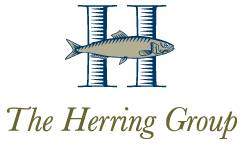
Analysis, Leadership and Change
for Companies in Transition
Methodology
The Herring Group is a virtual group. I leverage your people or new people that you hire to create change. You get the results you want while minimizing overhead.
This approach is better for you … and for me.The reason is simple: If the Herring Group were a large group, then I would be focused on operating the Herring Group – hiring people and selling hours. That is not what I like to do. My focus is helping you create change in your business through analysis and leadership.
For some clients, I perform the analysis and provide leadership. Other clients prefer that I perform the analysis while employees provide leadership. The point is that I provide the services uniquely suited to your situation.
Here are some examples of how I approach analysis, leadership and change. For specific case studies, see client highlights.
Analysis
- Interview key employees about the business and its goals
- Evaluate capabilities of key employees
- Review historical financial statements and operating data
- Prepare financial projections
- Discuss and evaluate company history, goals, markets and competition
Leadership
- Determine project goals and timing
- Develop a plan
- Determine key measurements
- Sell the plan to employees
- Implement the plan
- Meet regularly to monitor results, troubleshoot implementation problems, and guide employees
- Celebrate successes with employees
Change
- Increasing profit
- Achieving goals
- Increasing cash flow
- Improving operational processes
- Adjusting the business model
- Reducing financial and operational risks
- Performing consistently
- Securing more capital
- Enjoying business again

The "Stockdale Paradox"
In his book, Good to Great, Jim Collins formulates the Stockdale Paradox - named for a Navy Admiral who was tortured while serving as a POW in Vietnam for eight years. Here's the paradox:
"Retain faith that you will prevail in the end, regardless of the difficulties.
AND at the same time
Confront the most brutal facts of your current reality, whatever they may be."
As I provide services to clients, I give clients reasons for optimism as well as brutal facts.